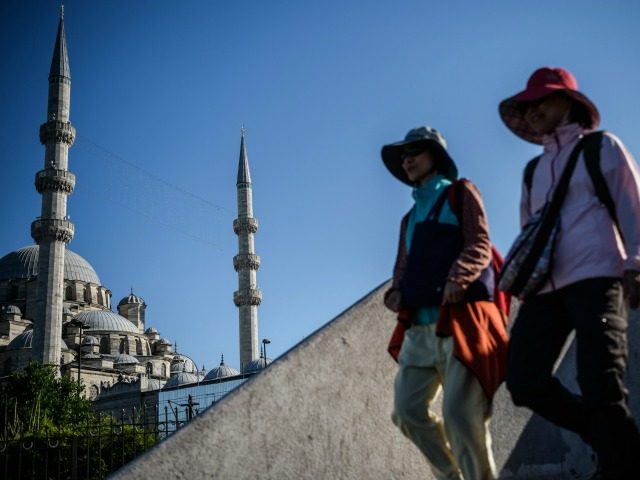ISTANBUL (AFP) – Yavuz Indere has worked as a hotel receptionist in Istanbul for nearly half a century, witnessing coups, unrest and economic crises.
But as a string of terror attacks erodes the backbone of Turkey’s key tourism sector, Indere admits he has never seen anything like this in the city.
“I’ve been doing this job for 45 years, obviously I’ve had tough years, but this time it was different,” he told AFP at his tiny hotel in the historic Sultanahmet area, the scene of a deadly attack on January 12 last year that rocked the tourism industry.
Exactly a year on from the bombing blamed on Islamic State (IS) jihadists which killed 12 German tourists in the heart of the city, many hotels are suffering, and some have closed their doors for good.
That attack was followed by a slew of strikes blamed on IS and Kurdish militants that killed hundreds in Turkey in 2016, capped by the gunning down of 39 revellers at Istanbul’s glamourous Reina nightclub by a suspected jihadist on New Year’s night.
“The heart of the problem is that terrorist attacks do not stop. People who go to visit a country want a guarantee … I understand them, it is a human reflex,” Indere said.
– ‘Heart of tourism’ –
The number of foreign tourists visiting Istanbul, with its historic mosques and Ottoman palaces, dropped to 9.2 million in 2016, a 26-percent decline on the previous year, tourism ministry statistics show.
The biggest number were Europeans, with 3.9 million of them descending on the vibrant metropolis, followed by 2.3 million tourists from the Middle East.
Over 10 percent of visitors were German, followed by Iranians (7 percent), Saudi Arabians (5.2 percent), British and French tourists (4 and 3.9 percent respectively), Americans (3.5 percent) and Russians (3.2 percent).
Tourists from Arab countries were down by 22 percent compared with 2015, the figures show.
Tourists can still be spotted on Sultanahmet — home to sights including the Blue Mosque and Hagia Sofia — but there is no sign of the crowds that once thronged the area and souvenir sellers look forlornly at their stalls.
The Sultanahmet attack was followed by another one on the busy Istiklal shopping street last March, which left three Israelis and an Iranian dead.
A gun and bomb attack on the city’s Ataturk airport in June slaughtered 47 people, including 19 foreigners.
Then on July 15, a failed coup attempt left dozens dead in Istanbul alone while a December double bombing near the Besiktas football stadium claimed by Kurdish militants killed 46 people.
“The airport was attacked, Sultanahmet was attacked, then Taksim was attacked, and finally the Reina (nightclub), which for me is an attack on the heart of tourism,” said Cetin Gurcun, secretary general of the Association of Turkish Travel Agencies (TURSAB).
The country as a whole has paid a steep price: while 42 million people visited Turkey in 2015, some 12 million fewer travelled there in 2016, Gurcun said.
“In foreign currency terms, revenues amounted to 31.6 billion dollars in 2015, and we had a fall of almost 10 billion dollars in 2016,” he added.
In 2015 tourism accounted for 4.4 percent of Turkey’s gross domestic product (GDP), according to the latest figures available.
– ‘Can’t let terrorists win’-
Adding to the tensions, the search continues for an IS-claimed jihadist who rampaged through the Reina nightclub in the early hours of 2017, shooting revellers, including Arab and European tourists, before escaping.
“It does worry me but you know, if you do not come, then you let the terrorists win,” said John Plas, a tourist from the Netherlands.
Noemie Deveaux from France said the only way to cope was to banish all thoughts of potential attacks from her mind while visiting Istanbul. “Otherwise it is unbearable,” she said.
Security measures have been heightened in the wake of the attacks, with heavily armed police patrolling streets.
Tourist guide Umran Aslan said it helped make her feel safer: “They’re trying to protect us. I feel better when I see police everywhere”.
But she admitted it was unlikely to reassure tourists. “it’s so sad, because I love my job”.

COMMENTS
Please let us know if you're having issues with commenting.